Do you remember laying on your back as a kid, looking up at the sky and figuring out what the clouds looked like? Here are some “clouds” to figure out – word clouds formed by about a hundred LinkedIn connections in response to this question: “What 3 words would you use to describe what it’s like to work in organizations today?” About half of the group are currently employed by organizations (“Inside View,”) and half are consultants (“Outside View.”) The third picture blends all responses.
I’m still forming my own impressions, but would like to know your interpretations as you scan all three images; leave me comments on your take-aways.
What’s it like to work in organizations today? (View from the inside)
What’s it like to work in organizations today? (View from the outside)
What’s it like to work in organizations today? (All responses)
A big “thank you” to my LinkedIn associates who took the time to respond. Also, thank you to “Wordle” – a slick free web tool for converting any text to word clouds. This was fun and revealing. It also comes as close as I’ll likely get to a fantasy that I’ve had of recreating Studs Terkel’s work that culminated in his 1974 book, Working. It was a compilation of his interviews with workers in dozens of professions in his search for the meaning of work, and an early influence in my career. Studs was a Pulitzer Prize winner who would have been 100 this year; I wonder what he would think about the state of work today?
It might be an interesting experiment to create your own organization’s or client organization’s word cloud in answer to a similar question; I’d love for you to share it.
“The supreme accomplishment is to blur the line between work and play.”
– Arnold Toynbee
“The highest reward for a person’s toil is not what they get for it, but what they become by it.”
– John Ruskin

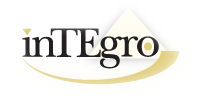




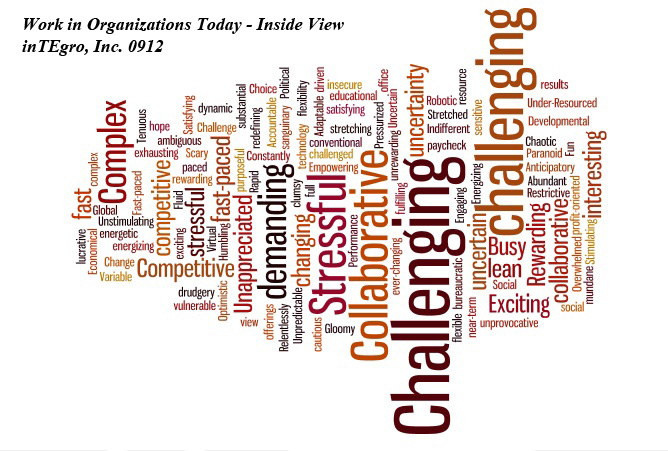
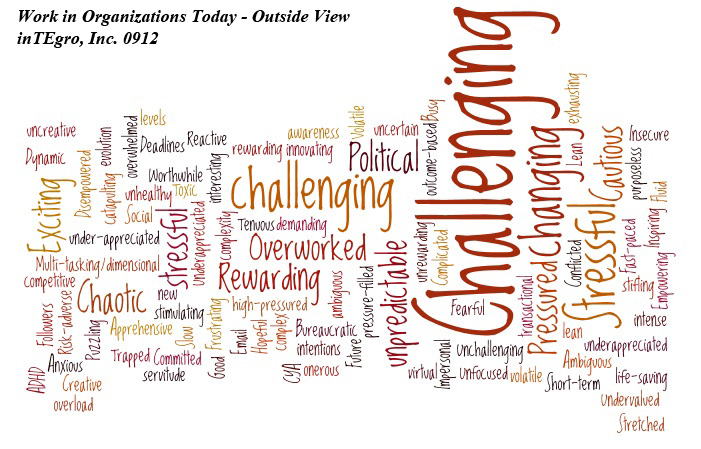
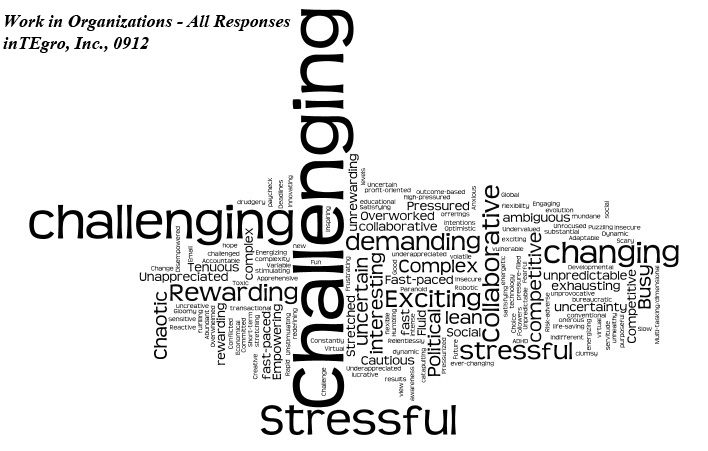
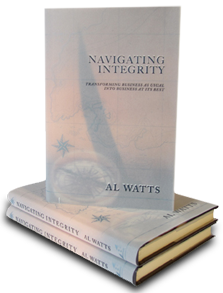
Love the work you did with these comments. It’s no surprise that challenging was so dominant, but my next analysis was to the balance between stressful/chaotic and exciting/rewarding. That wasn’t as clear to me. I would hope if we are doing HR/OD work right, we would get a stronger response in rewarding, exciting, generative? The inside view seemed even more negative than the extenal. Good starting place to thonk about.
Thanks, Dave, and thanks for your thoughtful analysis. I agree – there is a “light” and “dark” side to “challenging.” I assume that in “triple-e” environments (effective, engaging and ethical,) that use of “challenging” was accompanied by more positive descriptors like “dynamic,” “exciting” and “creative.” Otherwise, “challenging” was likely accompanied by words like “overworked” and “under-resourced.” Maybe a good next round would be to ask folks for three words that best describe how / why their work is challenging.